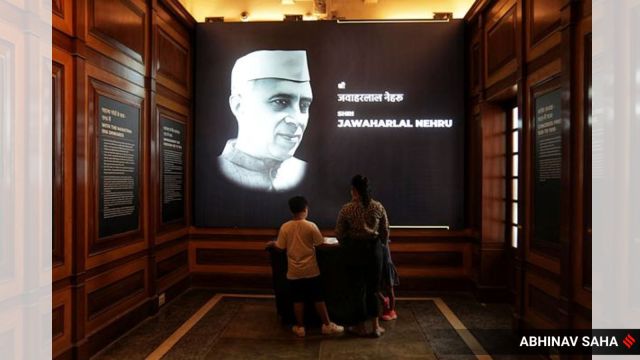Stay updated with the latest - Click here to follow us on Instagram
What’s a ‘secret sitting’ of Lok Sabha and why Jawaharlal Nehru didn’t agree to hold one
The provision has never been put to use, according to constitutional expert and former Lok Sabha secretary general P D T Achari.
 Belongings and memories of former PM Jawaharlal Nehru at Nehru Memorial renamed as Pradhanmantri Sangrahalaya in New Delhi. (Express Archive Photo by Abhinav Saha)
Belongings and memories of former PM Jawaharlal Nehru at Nehru Memorial renamed as Pradhanmantri Sangrahalaya in New Delhi. (Express Archive Photo by Abhinav Saha)
The proceedings of Lok Sabha, the lower house of Parliament, are live streamed on Sansad TV and a record is maintained on the government’s Digital Sansad website. But India’s constitution has carved out a provision to hold secret sittings, if required. The provisions for holding secret sittings at the request of the Leader of the House are embedded in Chapter 25 of the ‘Rules of Procedure and Conduct of Business in Lok Sabha,’ according to a report in news agency PTI. The Leader of the House needs to put forward a request to the Speaker, who will then fix a day or a part of it for “secret sitting” of the House, according to Rule 248, subclause one.
Did India ever hold a secret sitting of Lok Sabha?
The rules, which allow the government to convene a “secret sitting” of the Lok Sabha to discuss sensitive issues, haven’t been utilised so far. The closest that India came to holding a “secret sitting” of Lok Sabha was in 1962 during the Chinese aggression on the border.
Some members of Parliament from the opposition benches put forward an idea to discuss the matter by holding a secret sitting of the House.
It was then prime minister Jawaharlal Nehru, who disagreed.
What is ‘secret’ about this Lok Sabha sitting?
Traditionally, visitors, including those on study visits, are allowed to attend the proceedings of the Lok Sabha. But, when the House sits in secret, no stranger will be permitted to be present in the “chamber, lobby or the galleries,” according to subclause 2. There are some exceptions though.
Also, a report on the proceedings is issued in a way deemed fit by the Speaker.
“But no other person present shall keep a note or record of any proceedings or decisions of a secret sitting, whether in part or full, or issue any report of, or purport to describe such proceedings”.
What happens if someone discloses what happened during a secret sitting?
Disclosing the proceedings or decisions taken during a secret proceeding or sitting will be treated as a “gross breach of privilege of the House,” according to the rules.
Can the details be ever revealed?
The Leader of the House or any authorised member needs to move a motion that the proceedings should no longer be considered secret. For this, the Speaker’s consent is required. If the motion is passed, the secretary general will put together a report of the proceedings during the “secret sitting”, and publish it at the earliest.
Why Nehru turned down request for secret sitting of Lok Sabha?
There has been “no occasion” when a secret sitting of the House has taken place, according to Constitutional expert and former Lok Sabha secretary general P D T Achari.
While some opposition members had batted for a secret sitting to discuss the sensitive issues during the India-China conflict in 1962, Nehru did not agree.
The country’s first prime minister said that the public deserved to know about the proceedings of the house, according to the report, which quoted Achari.
(With PTI inputs)







